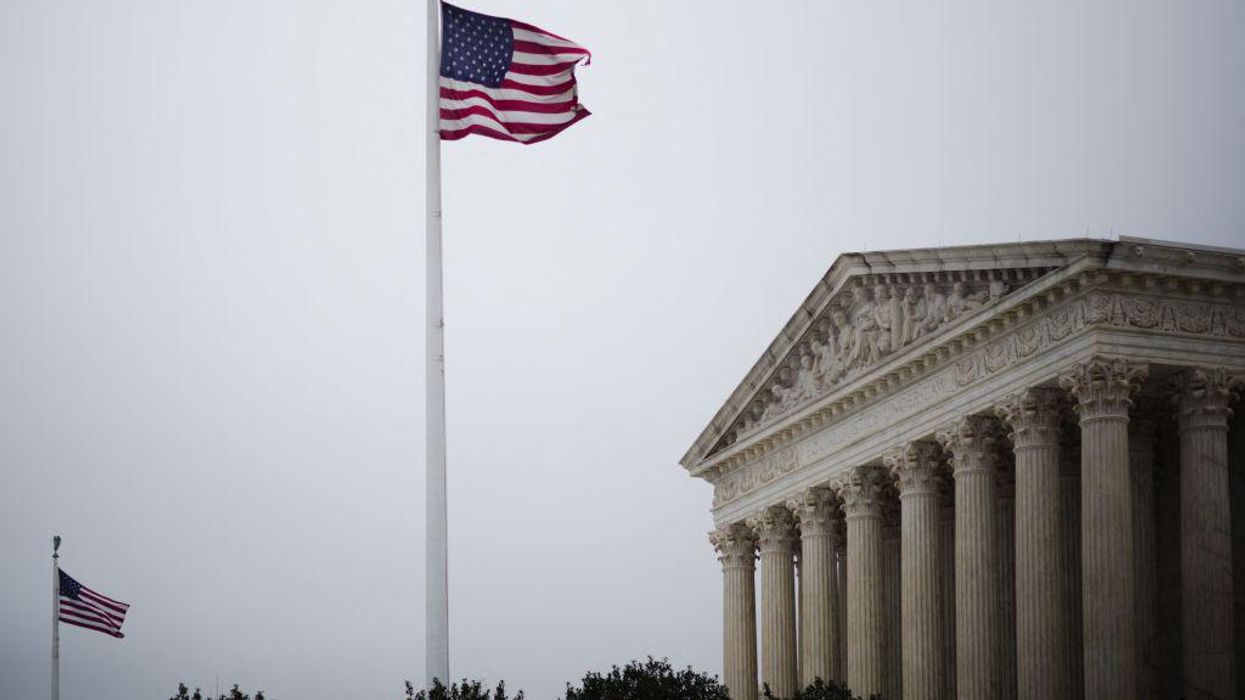
MANDEL NGAN/AFP via Getty Images

The Supreme Court heard arguments in a case Monday that could potentially rein in the broad authority currently enjoyed by the Environmental Protection Agency — and several other federal bureaucracies, as well.
West Virginia v. EPA specifically wrestles with the scope of the environmental agency's authority to regulate air pollution by mandating sweeping greenhouse gas emissions benchmarks for the country's power plant industry.
Since 2009, various presidential administrations have sought to curb carbon dioxide emissions from the country's power plants by delegating overarching regulatory power to the EPA. In turn, unelected officials at the EPA set varying emissions limits on each state in an effort to slow global warming, in the process, raising the specter of incurring massive costs on the country's power suppliers.
Interestingly, at the time that this case was heard, no EPA rule was in place. That fact has alarmed environmental advocates who fear the conservative majority Supreme Court will preemptively undermine the Biden administration's attempts to limit power plant emissions. President Biden has pledged to cut greenhouse gas emissions by 50% over the next decade.
In their petition before the high court, coal industry representatives and attorneys general from 19 predominantly Republican states argue that the EPA is operating outside the bounds of its authority when it implements sweeping emissions limits.
Though the court did not clearly telegraph an outcome in the case, conservative justices on the bench did perhaps hint as to a direction it may go by raising concerns about whether the power often exercised by the EPA went beyond that which was granted to it by Congress, the Hill reported.
During oral questioning, justices reportedly took turns raising aspects of the "major questions doctrine," a legal rule that, according to Law & Crime, states that when a matter of great political or economic importance is in view, Congress must be specific in its delegation of power to regulate the matter.
Justice Samuel Alito reportedly suggested that if the EPA were granted authority to regulate climate change writ large, it would be difficult to conceive of any limit to its power.
"This statute requires EPA to take into account several factors ... and they are incommensurable (with climate change)," Alito said. "What weight do you assign to the effects on climate change, which some people believe is a matter of civilizational survival, and the cost and the effect on jobs?"
Justice Amy Coney Barrett reportedly asked whether there is "any daylight" between the major questions doctrine and the "non-delegation doctrine," a legal principle establishing that branches of government cannot delegate power that they do not possess.
Liberal justices were not as keen on questioning the EPA's regulatory authority.
If the court's conservative majority rules against the EPA in the case, it will have profound effects on how the federal government addresses climate change.
But, according to NPR, a ruling like that could also affect the federal bureaucracy at large and "hamstring the authority of all agencies, from the EPA to the Securities and Exchange Commission to Federal Reserve Board."
The Associated Press reported, too, that "a broad ruling by the court also could weaken regulatory efforts that extend well beyond the environment, including consumer protections, workplace safety, and public health."
The news agency noted that "several conservative justices have criticized what they see as the unchecked power of federal agencies."
A decision on the case is expected in the summer.